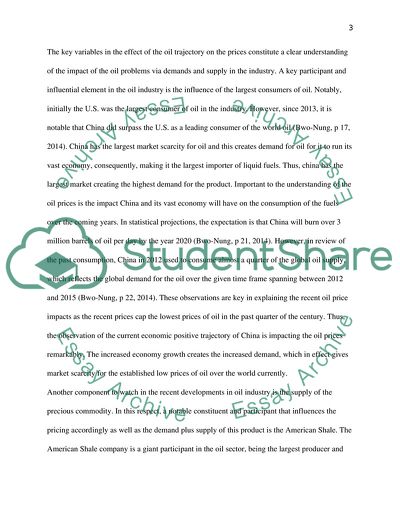Cite this document
(FACTORS AFFECTING THE FALL OF OIL PRICE Essay Example | Topics and Well Written Essays - 2750 words, n.d.)
FACTORS AFFECTING THE FALL OF OIL PRICE Essay Example | Topics and Well Written Essays - 2750 words. https://studentshare.org/macro-microeconomics/1867233-factors-affecting-the-fall-of-oil-price
FACTORS AFFECTING THE FALL OF OIL PRICE Essay Example | Topics and Well Written Essays - 2750 words. https://studentshare.org/macro-microeconomics/1867233-factors-affecting-the-fall-of-oil-price
(FACTORS AFFECTING THE FALL OF OIL PRICE Essay Example | Topics and Well Written Essays - 2750 Words)
FACTORS AFFECTING THE FALL OF OIL PRICE Essay Example | Topics and Well Written Essays - 2750 Words. https://studentshare.org/macro-microeconomics/1867233-factors-affecting-the-fall-of-oil-price.
FACTORS AFFECTING THE FALL OF OIL PRICE Essay Example | Topics and Well Written Essays - 2750 Words. https://studentshare.org/macro-microeconomics/1867233-factors-affecting-the-fall-of-oil-price.
“FACTORS AFFECTING THE FALL OF OIL PRICE Essay Example | Topics and Well Written Essays - 2750 Words”. https://studentshare.org/macro-microeconomics/1867233-factors-affecting-the-fall-of-oil-price.


